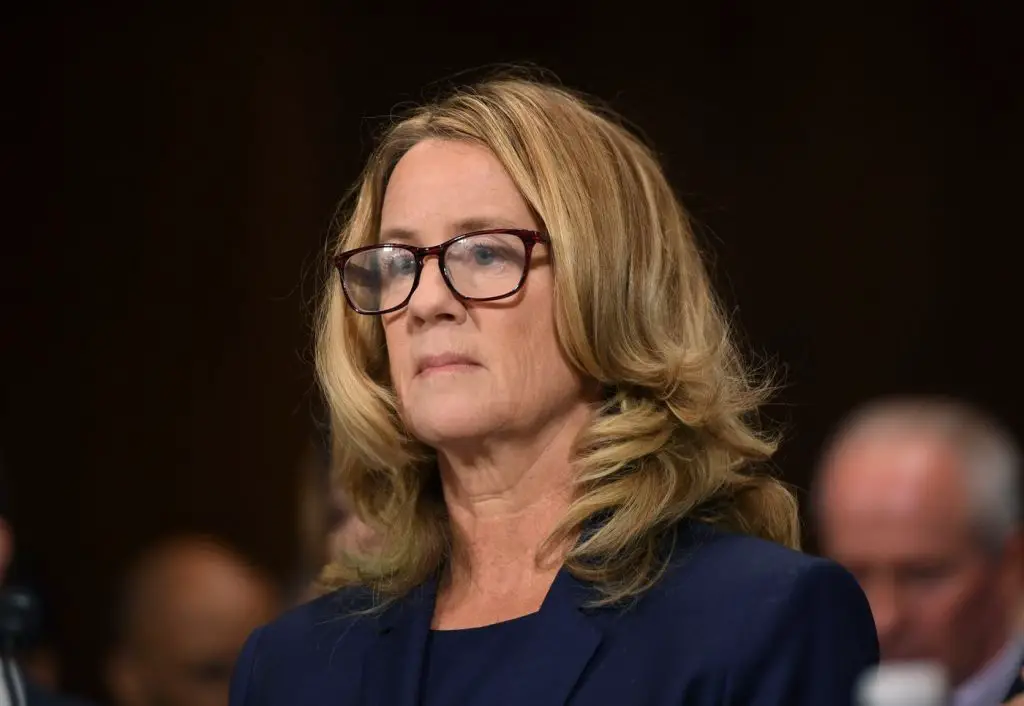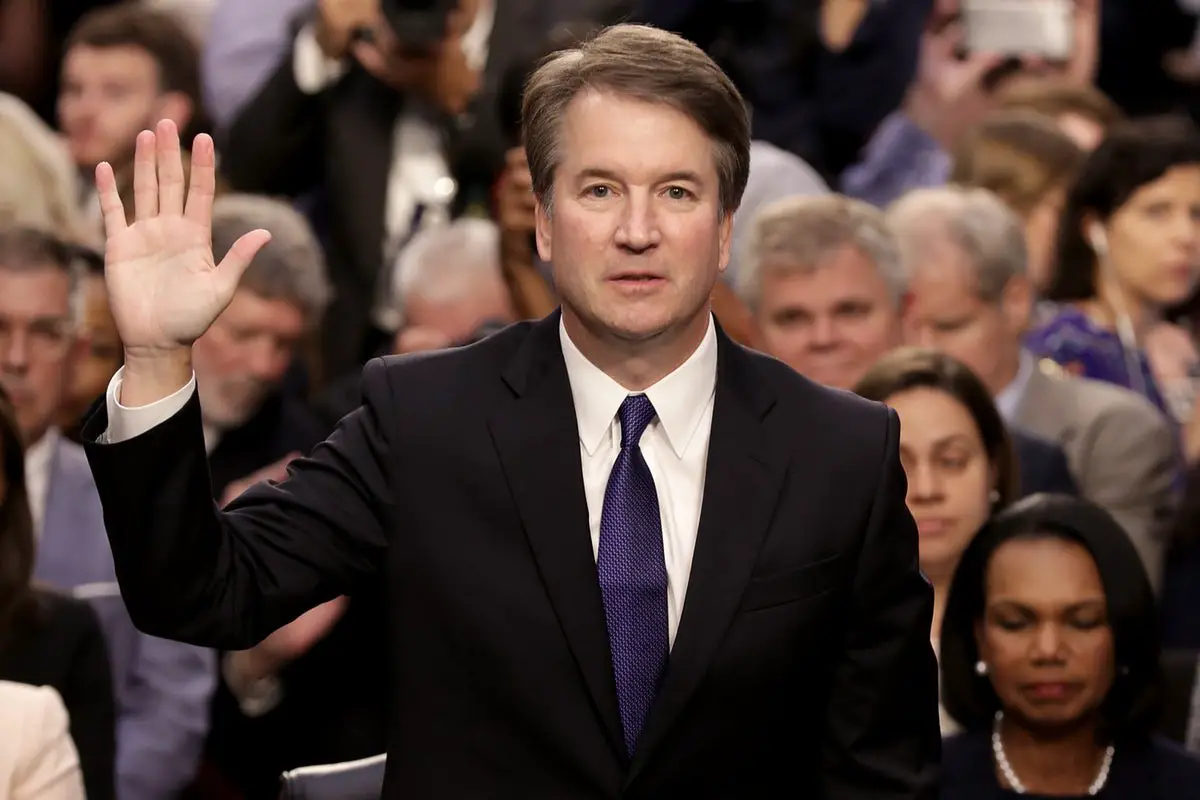Until just a week ago, it seemed like Brett Kavanaugh had a pretty clear path to being confirmed by the Senate to replace retiring Justice Anthony Kennedy on the Supreme Court. There had been plenty of concern from Democrats regarding his nomination, mainly about his opinions on abortion and other women’s issues that are sure to come before the court within the next few years. But because Republicans hold control of the Senate and only need a simple majority to confirm Kavanaugh, it has been all but certain that he would move smoothly through the process. That was before Christine Blasey Ford, Deborah Ramirez and Julie Swetnick entered the picture and threw things into a state of chaos and controversy.
All three women have accused Kavanaugh of sexual misconduct, citing incidents dating back to the 1980s. Ford says that he assaulted her at a party while the two were in high school, and Ramirez says that he exposed himself to her during their freshman year at Yale. Swetnick, who was brought forward by Stormy Daniels’ lawyer, Michael Avenatti, says that Kavanaugh was present when she was gang raped in high school. Kavanaugh has vehemently denied all of the allegations, calling them a “coordinated effort” to destroy his reputation and block his confirmation.
It’s a scenario that seems to have become practically routine since the beginning of #MeToo, accusations and subsequent denials. Added to that has been the Democrats rallying in support of the accusers and calling for a full FBI investigation into the allegations while the public has been using #blockkavanaugh all over social media. But out of everything, the most fascinating yet terrifying aspect of this increasingly wild scenario has been the polarizing public response surrounding the seemingly sudden nature of the accusations. Conservative commentator Tomi Lahren summed up the skepticism in a single tweet: “Decades-old allegations against Kavanaugh come out just days before a vote….victim or opportunist?”
Decades-old allegations against Kavanaugh come out just days before a vote….victim or opportunist?
— Tomi Lahren (@TomiLahren) September 16, 2018
The response to that sort of criticism quickly turned into #WhyIDidntReport spreading all over social media, with women and men alike sharing their harrowing stories of fear and shame after becoming victims of sexual crimes. Some say that they reached out to someone, but they weren’t taken seriously or were told that they should have prevented it from happening in the first place.
It’s an argument that’s used far too often to obliterate a victim’s credibility: If someone doesn’t immediately report their sexual assault, then they must be lying. After all, why wouldn’t a real victim want to get justice as soon as possible? Without putting much thought into it, it makes sense. If you have a crime committed against you, the logical next step would be to report it and expect that something will be done about it.
But then again, sexual misconduct isn’t quite like other crimes. There’s not always tangible physical evidence, and the emotional aftermath of such a violating crime sticks with the victim for the rest of their life. But as for why someone wouldn’t report a sexual crime against them, the answer is complicated. They might still be processing the trauma and don’t feel ready to tell their story to someone else. Despite the fact that sexual assault is never the fault of the victim, they might be afraid of being blamed for what happened to them. They also could be afraid of being ostracized or retaliated against for reporting, especially if they personally knew their attacker. Or they might just be afraid that no one is going to believe them.
The fact that Christine Blasey Ford has had to hire private security and practically go into hiding after receiving death threats probably doesn’t do much to discredit those fears.
If anything, Kavanaugh’s accusers had every reason to avoid coming forward. Especially in such a public setting, they have nothing to gain and everything to lose. Staying silent would have been easier, and it would have spared them from having to go through a saga similar to Anita Hill’s, who came forward with sexual harassment allegations against Justice Clarence Thomas during his 1991 confirmation process. But it would have robbed them of the opportunity to finally hold Kavanaugh accountable for his actions.
With Ford set to testify on Thursday, the situation is becoming more like Anita Hill’s every day. Hill said that Justice Thomas had repeatedly harassed her while he was her superior at the Department of Education and Equal Opportunity Employment Commission, and she was ripped apart by the Senate Judiciary Committee in a hearing that had the cards stacked against her from the start. Beyond what happened in the Senate, the smear campaign against her credibility included death threats and the phrase “a little bit nutty and a little bit slutty,” coined by former conservative David Brock.

Of course, this isn’t 1991, and the current Judiciary Committee seems determined to prove that it at least somewhat learned from past mistakes. Hill had to be questioned by the full committee, which was made up entirely of white men, while Christine Blasey Ford was questioned only by sex crimes prosecutor Rachel Mitchell during her hearing. But that small difference does nothing to change the fact that despite the courage that it took for her to come forward and the importance of her story, she is entering a vicious partisan fight for control over the Supreme Court. It’s a war that takes no prisoners, and if they choose not to handle the situation correctly, lawmakers might throw a wrench into the progress that #MeToo has made over the past year.
That just might be the most distressing part of this entire situation. After nearly a year of seeing women be encouraged to come forward and speak their truth, this serves as a sobering reminder that the conversation surrounding sex crimes still a long way to go. The misconceptions of what it means to be a victim of sexual assault or harassment are still dictating how accusers are treated. Although it might be easier to think that Ford is going to get a fair hearing, there’s the strong possibility that every single senator on that committee has made up their mind and that this is merely for show. For the sake of victims who are afraid to come forward for whatever reason, all anyone can do is hope that the opposite is true.

















